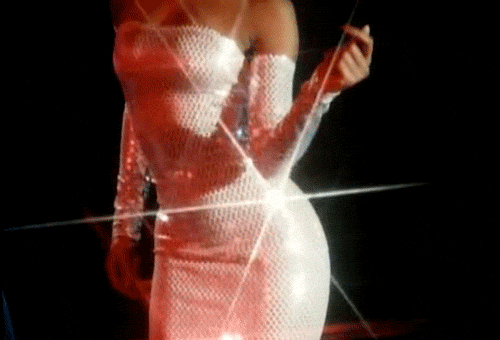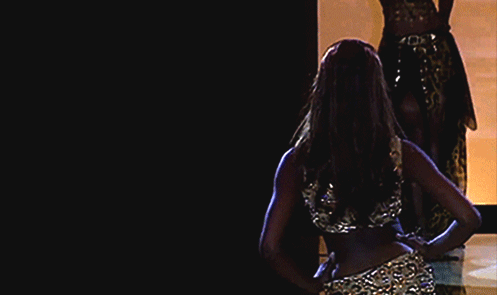Post by Minimal on Feb 11, 2016 18:03:38 GMT -8
The video that is provided with the article (I cannot embed) does a good job of giving some background information about a lot of the imagery used in her video, and emphasizes the significance of the lyrics.

Why Are People Suddenly Afraid of Beyonce's Black Pride?
If anything has been made clear in the past two weeks about black female lives in America's pop territory, it's that black girls are magic, but black women expressing their views are on the "attack." As the gigabytes of reactions to Beyonce's "Formation" -- the song, the video, the Super Bowl performance, the seismic event -- have shown, white America, white supremacy and patriarchy continue to live in fear of an actualized black woman who actually resonates with black women.
It would be woefully incorrect to say that "Formation" is Beyonce's coming into womanhood -- she's been a mother for years, a wife for longer and a boss before that. But "Formation" is in many ways her own formation: the moment when she finally stepped beyond Beyonce and into the larger world. On her last album, Beyonce, her politics were deeply personal. Songs like "Flawless," "Partition" and "Drunk in Love" were about her singular agency: her sex and sexiness, her self-love, her wife-love, her adulthood. But "Formation" is a song from a mother who seemingly has it all -- success in family, career, wealth, power and fame -- but realizes that none of that means as much as the world she leaves behind to her daughter. And it's a pop song that could only be made at this chart-topping register by someone whose net worth is currently F-point-U-million dollars.
Like all transcendent pop songs, "Formation" is both universal and local. She begins: "My daddy Alabama, momma Louisiana/ You mix that negro with that Creole make a Texas bama" -- and it's impossible to hear this roots roll call as anything but a declaration of being. In his recent musical polemic, Seattle rapper Macklemore noted that whites "take all we want from black culture, but will we show up for black lives?/ We want to dress like, walk like, talk like, dance like, yet we just stand by." His observation was not original -- it's something cribbed from activists that have been at the intersection of culture and politics for years. It's a reality that's been allowed to exist only by virtue of a low-level cognitive dissonance that lets people easily separate art from both the world at large and the artists who create it.
There's no need to engage in the ignored cases of depression and self-medication in African-American communities to enjoy Future's booming nihilism; the lack of employment opportunities for black women don't have to be taken into account while twerking; and dabbing requires no acknowledgement of the interior world of black America. But Beyonce, much like Kendrick Lamar on To Pimp a Butterfly, has woven her identity as a descendant of Africans dragged across the Atlantic and raped by white men so deeply into the fabric of this song that it becomes a dare to remain willfully ignorant. Her metaphoric signifiers may require a bit of unpacking and translation (and, for some, consultations with Google, Genius, Urban Dictionary and back episodes of Blackish), but the message is clear in any language: hot sauce in her bag, Jackson 5 nostrils, baby hair and afros. This is a song about blackness, and that message is indivisible from its bounce.
And the video itself: directed by a woman; centered around the legacy of pre- and post-diluvial New Orleans; full of allusions to Trayvon Martin, Tamir Rice and Mike Brown; highlighted by around the way girls, echoes of Dapper Dan, Southern belles reimagined; lots of cornbread and collard greens and not a white person in sight. There's also no small amount of role reversal. She says that she wears her husband's necklaces (but not a wedding band) as a symbol of her ownership of him, not the other way around. If he pleases her sexually, she'll take him to a mid-brow seafood chain, drop him off at the mall to buy overpriced sneakers and take him on a helicopter ride. She invokes gay slang and showcases the gender-defying Big Freedia to talk about collard greens.
Tellingly, the white-aggression apologists at Fox & Friends had no idea what to make of any of this. Displaying the insatiable pettiness that is the hallmark of the conservative right, host Brian Kilmeade noted that "Beyonce was in there too" when talking about her Super Bowl performance. Kilmeade and his clueless cohorts claimed that they could not make out what she was saying, which was essentially them saying that they could not understand the upending of Eurocentric beauty standards and the reversal of patriarchal pastimes. For de facto racist Rudy Giuliani, "Formation" somehow became about being anti-police. (How, Sway?)
Additionally, U.S. Representative Peter King (R-Long Island) released a statement which referred to Beyoncé as "a gifted entertainer" but took issue with her "pro-Black Panther and anti-cop video," which translates to King saying that the video's graffiti'd message of "stop killing us" is much the same as N.W.A uttering "---k the police." An unnamed person (or persons) -- calling her Super Bowl performance a "slap in the face to law enforcement" -- is organizing an Anti-Beyoncé Protest Rally outside the NFL headquarters building. While one can hope that protest leads to a massive dance-off, it can't be ignored that the idea of unapologetic black self-love remains repulsive and threatening to many.
But perhaps the most intimidating thing about "Formation" is how Beyonce used the song, and the noise it made, in such an incredibly shrewd way. She released it for free right before her Super Bowl performance -- which itself nodded to the Black Panther party's 50th anniversary and Malcolm X in front of 112 million people -- and right after Trayvon Martin's birthday. In a commercial after the performance, she announced her three-month world tour and a partnership with the United Way for a long-term, comprehensive commitment to Flint, Michigan's water crisis. For a woman who hasn't spoken to the media in years (with the exception of this BEAT magazine Q&A), Beyonce said a whole lot -- especially at a moment when feminist icons emeritus are bumbling over themselves. She might just be a black Bill Gates -- not an Oprah or a Martha Stewart -- in the making.
Source: www.msn.com/en-us/music/news/why-are-people-suddenly-afraid-of-beyonces-black-pride/ar-BBpmNn2?li=BBnb2gh









